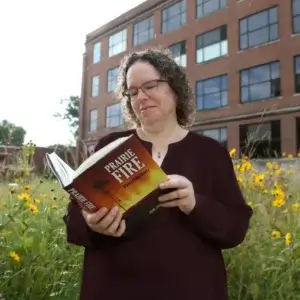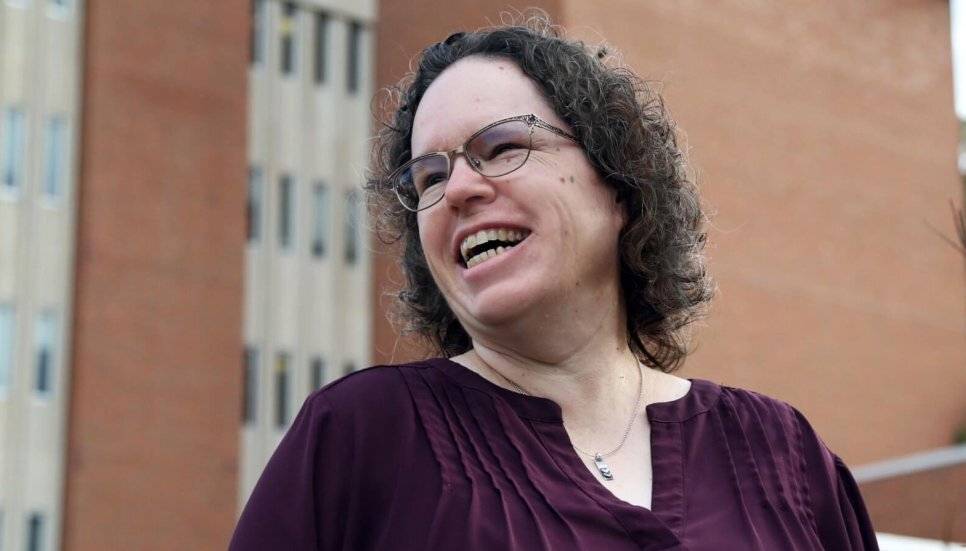Faces of Discovery
Julie Courtwright’s passions for history and writing may only be matched by her passion for dogs and dog training.
One of the surprising fun facts about Julie, is she has “trained two AKC (American Kennel Club) agility champions and I have two future agility champions in training right now. I hope in the future to integrate my love for dogs with my love for environmental history and perhaps write an environmental history of dogs.”
While dogs and dog training are a rewarding avocation, Julie centers her professional life on the exploration of the environmental history of the Great Plains, which she defines as the original tallgrass prairies that stretched from Iowa on the region’s eastern edge to Montana and Colorado to the north and west and parts of Oklahoma and Texas to the south.
Julie’s focus is on three key environmental factors that have, and continue to, impact the Great Plains and its people: Fire, Wind and Water. “Each are very prominent on the Plains and have shaped the ecosystem and shaped the humans who have lived and interacted with the region,” she says.

Julie is in the process of researching and authoring a trilogy. Her first book, Prairie Fire: A Great Plains History was published in 2011. She is currently working on her second title – Windswept – and she plans to follow that with a third book focused on water’s impact on the Great Plains.
Helping expand people’s appreciation and understanding of our history of environmental factors and impacts is more important now, than ever. “Learning from the past – and how people have adapted in this ecosystem that is becoming even more volatile and complicated with climate change – is invaluable in helping us adapt to the present time and the future,” Julie says.
Information – and the democratization of information – truly is power, so Julie is proud of the emphasis she has placed on making the product of her research readily accessible.
“Any interested person can pick up my book and get something out of it,” she says. “I’ve also worked to incorporate my research into my teaching. I’ve mentored a lot of graduate students and developed a Great Plains course that fuses science with history, literature and other disciplines. I’m proud that I’ve made the learnings and insights of my research accessible to both students and the general public.”

